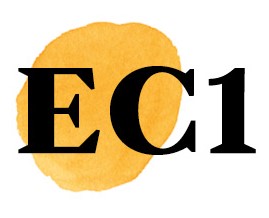Hundreds of households in Islington have children looked after by siblings, aunts, uncles, cousins or grandparents, new figures show.
By Will Grimond, Data Reporter

Hundreds of households in Islington have children looked after by siblings, aunts, uncles, cousins or grandparents, new figures show.
A charity has called for better data collection on these families, to provide better support for those living in alternative family structures.
The ONS defines kinship care as children aged under 18 being looked after by family members who are not their parents.
Estimates from the 2021 census suggest there were at least 360 children looked after by 475 kinship carers in Islington.
However, information on family relationships is only available for households with fewer than six members – so the true figures may be higher.
Nearly three-fifths of children (59%) lived with at least one grandparent, ONS figures show.
Steve Smallwood, from the ONS, said it is “striking how important grandparents are in providing care”.
The ONS’ figures also show those in kinship care households were more likely to have a family member with a disability, and more likely to be missing work due to long-term illness – issues that may be explained by the age of potential kinship carers.
Kinship, a charity supporting such families, welcomed the figures, but warned they are not “enough to give us the accurate and robust understanding of kinship families” needed for policy on kinship relationships.
The charity called the disparity in data collection “unacceptable”.
It added: “The invisibility of kinship families allows children and their carers to remain invisible to policymakers – this must end if we are serious about truly transforming support for kinship families of all types throughout England and Wales.”
The organisation has campaigned for paid kinship care leave on a par with adoption leave – and this week Tesco promised the same support to kinship carers as those who have adopted.
The Government has pledged to publish a national kinship care strategy by the end of 2023.
The findings also suggest there were regional disparities in the proportion of children in kinship care households. While the 11,945 in London (1.3%) was below the national average, the North East saw the highest proportion of such households, with six of the top 10 local areas for kinship care.
Cathy Ashley, chief executive of Family Rights Group, said kinship carers can face barriers to support – with many having to give up work to take on caring responsibilities and potentially “driving them into poverty”. These barriers can also stop children from getting the support they need after the trauma of losing their parents.
She added: “Kinship carers are doing right by the children, now it’s time for government to do right by kinship care by raising its ambitions in the upcoming kinship care strategy.”









